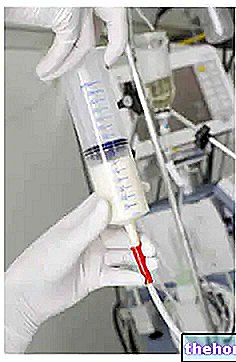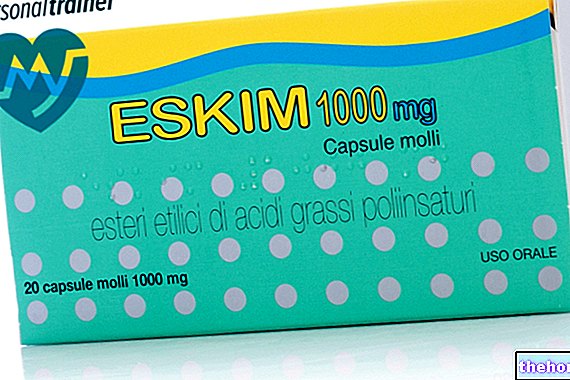
What is Amgevita - Adalimumab and what is it used for?
Amgevita is a medicine that acts on the immune system and is used to treat the following conditions:
- plaque psoriasis (a disease causing red, scaly patches on the skin);
- psoriatic arthritis (a disease causing red, scaly patches on the skin with inflammation of the joints);
- rheumatoid arthritis (a disease causing inflammation of the joints);
- axial spondyloarthritis (inflammation of the spine causing back pain), including ankylosing spondylitis, even without radiographic findings but with clear signs of inflammation;
- Crohn's disease (a disease causing inflammation of the intestines);
- ulcerative colitis (a disease causing inflammation and ulcers of the intestinal lining);
- polyarticular juvenile idiopathic arthritis and active arthritis associated with enthesitis (both rare diseases that cause inflammation of the joints); hidradenitis suppurativa (acne inversa), a chronic skin disease that causes lumps, abscesses (pus accumulations) and scarring on the skin ;
- non-infectious uveitis (inflammation of the layer below the white of the eyeball).
Amgevita is mainly used in adults with severe, moderately severe or worsening conditions or when patients cannot be treated with other treatments. For more information on the use of Amgevita in all conditions, including those in which it can be used in children, see the Summary of Product Characteristics (included in the EPAR).
Amgevita contains the active substance adalimumab and is a 'biosimilar medicine'. This means that it is very similar to a biological medicine (the 'reference medicine') that is already authorized in the European Union (EU). The reference medicine for Amgevita is Humira. For more information on biosimilar medicines, please see the questions. and answers by clicking here.
How is Amgevita used - Adalimumab?
Amgevita can only be obtained with a prescription; the treatment must be initiated and supervised by medical specialists experienced in the diagnosis and treatment of conditions for which it is authorized. Doctors prescribing treatment for uveitis should also consult with doctors experienced in the use of Amgevita.
The medicine is available as a solution for injection under the skin in a pre-filled syringe or pen. The dose depends on the condition to be treated and in children it is usually calculated on the basis of body weight and height. After the initial dose, Amgevita is most often given every two weeks; however, it can be given on a weekly basis in certain situations. If the doctor deems it appropriate, the injection of Amgevita can be given by the patients themselves or by their caregivers, after having received the relevant instructions. During treatment with Amgevita, patients may be given other medicines, such as methotrexate or corticosteroids (other anti-inflammatory medicines).
For information on the doses to be used for the various conditions and the use of Amgevita, see the package leaflet.
How does Amgevita - Adalimumab work?
The active substance in Amgevita, adalimumab, is a monoclonal antibody (a type of protein) designed to recognize and attach to a chemical messenger in the body called tumor necrosis factor (TNF). This messenger is responsible for inflammation and it found in high concentrations in patients with diseases that can be treated with Amgevita. By binding to TNF, adalimumab blocks its activity, thereby reducing inflammation and other symptoms of the disease.
What benefit has Amgevita - Adalimumab shown during the studies?
Large-scale laboratory studies comparing Amgevita and Humira have shown that the adalimumab contained in Amgevita is highly similar to the adalimumab contained in Humira in terms of chemical structure, purity and biological activity. P.
Because Amgevita is a biosimilar medicine, the studies performed with Humira regarding efficacy and safety do not all need to be repeated for Amgevita.
The medicine was shown to have effects similar to Humira in one main study involving 526 patients with moderate to severe rheumatoid arthritis who had not responded adequately to methotrexate and in another main study involving 350 patients with moderate to severe psoriasis.
In the rheumatoid arthritis study, response was quantified with a relief of 20% or greater in symptom score after 24 weeks of treatment: 75% of patients treated with Amgevita had responded compared to 72% of those treated with Humira In the psoriasis study, which looked at the degree of improvement after 16 weeks, there was 81% in the symptom score with Amgevita compared with 83% relief with Humira.
What are the risks associated with Amgevita - Adalimumab?
The most common side effects with adalimumab (seen in more than 1 in 10 patients) are infections of the nose and throat, sinuses and upper respiratory tract, injection site reactions (redness, itching, bleeding, pain or swelling ), headache and musculoskeletal pain.
Amgevita and other medicines of the same class can also affect the immune system's ability to fight infections and cancer, and there have been cases of serious infections and blood cancer in patients taking adalimumab.
Other rare serious side effects (seen between 1 in 10,000 and 1 in 1,000 patients) are inability of the bone marrow to produce blood cells, nervous system disorders, lupus and lupus-like diseases (in which the immune system attacks the tissues causing inflammation and organ damage) and Stevens-Johnson syndrome (a serious skin condition).
Amgevita must not be used in patients with active tuberculosis and other serious infections or in patients with moderate to severe heart failure (the heart's inability to pump enough blood around the body). For the full list of restrictions, see the package leaflet. .
Why has Amgevita - Adalimumab been approved?
The Agency's Committee for Medicinal Products for Human Use (CHMP) decided that, in accordance with EU requirements for biosimilar medicines, Amgevita has a highly similar structure, purity and biological activity to Humira and is distributed in the body in the same way. .
Furthermore, studies in rheumatoid arthritis and psoriasis have shown that the effects of the medicine are equivalent to those of Humira in these conditions. All these data were considered sufficient to conclude that Amgevita will behave in the same way as Humira in terms of efficacy and safety in the approved indications. Therefore, the CHMP considered that, as in the case of Humira, the benefits outweigh the identified risks and recommended the granting of the Marketing Authorization for Amgevita.
What measures are being taken to ensure the safe and effective use of Amgevita - Adalimumab?
The company that markets Amgevita must provide information packs to doctors who prescribe the medicine. These packages include information on the safety of the medicine and an alert card to be given to patients.
The recommendations and precautions to be observed by healthcare professionals and patients for Amgevita to be used safely and effectively have also been reported in the summary of product characteristics and package leaflet.
More information about Amgevita - Adalimumab
For the complete version of Amgevita's EPAR, consult the Agency's website: ema.europa.eu/Find medicine / Human medicines / European public assessment reports. For more information about Amgevita therapy, read the package leaflet (included with the EPAR) or contact your doctor or pharmacist.
The information on Amgevita - Adalimumab published on this page may be out of date or incomplete. For a correct use of this information, see the Disclaimer and useful information page.




























